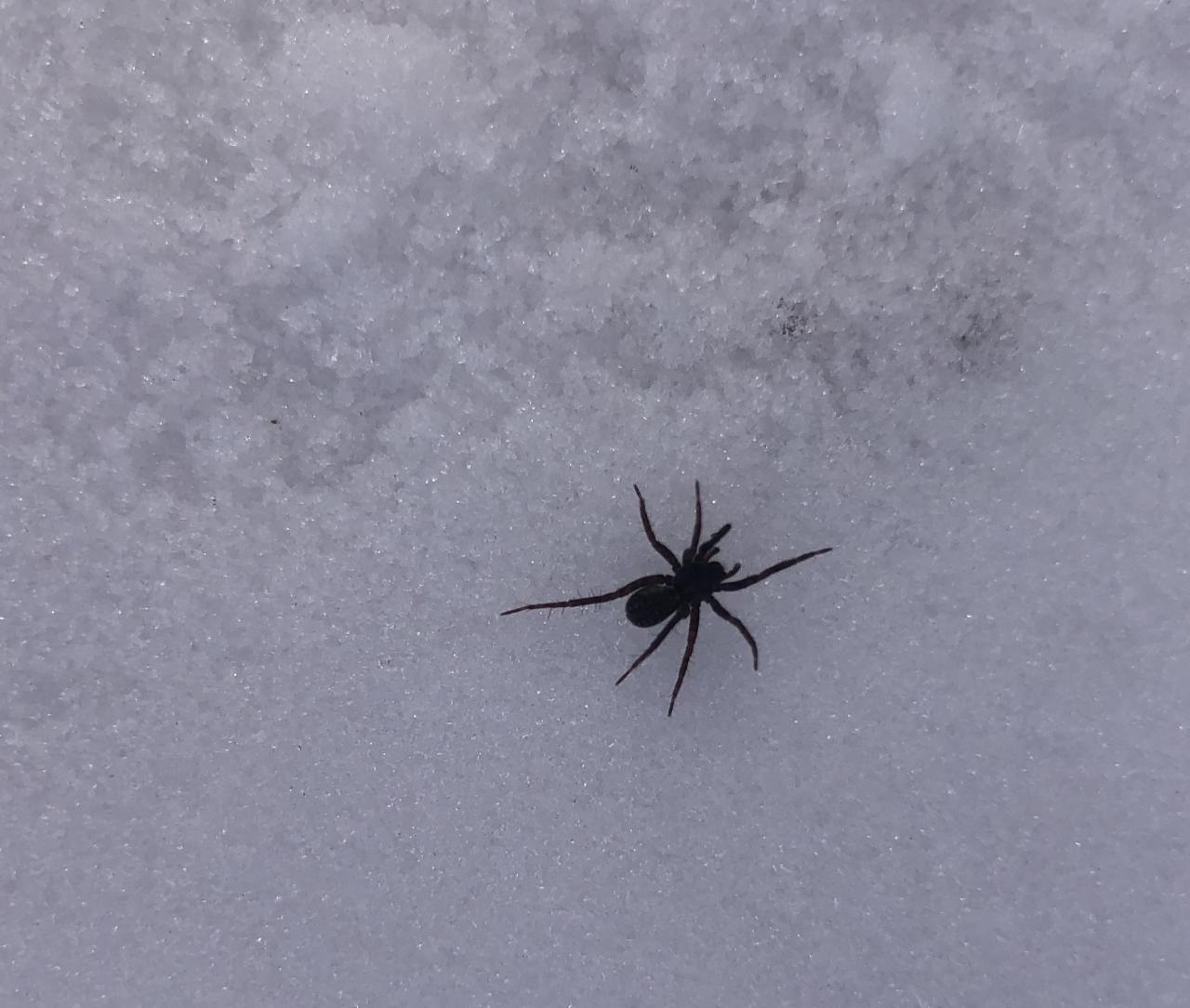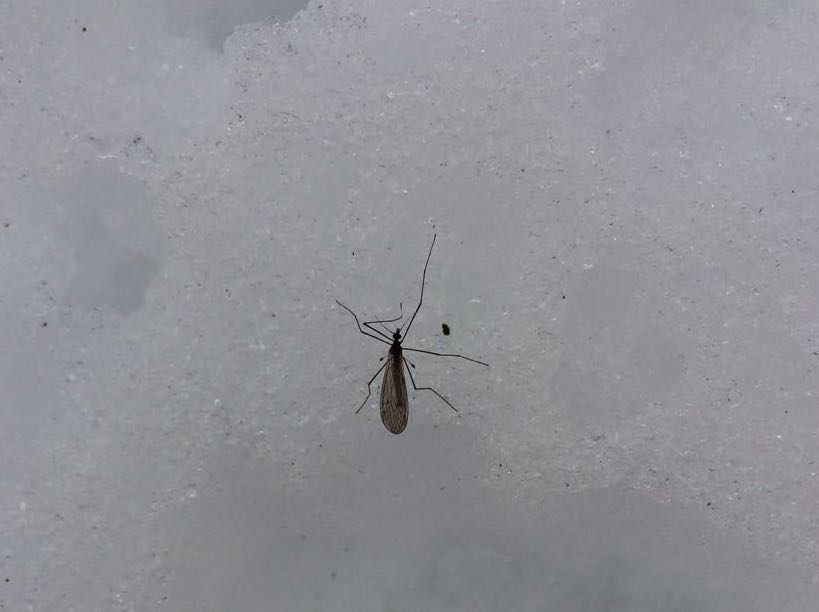Winter insects and spiders
Warm winter days are a great time to see tiny creatures wandering atop the snowpack. With early January 2020 days in the balmy mid-30's, a close look revealed more than you might expect!
Recently, I've been seeing the occasional winter crane fly (pictured above). Like their summer relatives, they're fairly weak flyers and seem to stumble around on the snow. Unlike their warm-season cousins, however, winter crane flies are quite small — less than a half-inch long. Crane fly species seen in the summer are quite large, about an inch long, and look a bit like giant mosquitos.
Some species of winter crane flies overwinter as adults, hanging out in crevices of tree bark or other protected areas. When temperatures rise they can become active, but they're not necessarily "doing" anything more than enjoying a warm day! The adults apparently do not eat (though there is some uncertainty about that) and mating season happens in the spring.
Another common snow critter is the snow flea or springtail.
They tend to be fairly common and easy to find, but they are teeny. Look for tiny black specks that hop around if you put a finger near them. Fun fact: Springtails feed on microscopic algae within the snow.
Various species of winter spiders can also be seen crawling the snow surface on warm days, emerging from their winter home in the leaf litter. Check out this one recently found in St. Paul!

FMR’s work to improve water quality and restore critical habitat is made possible by our members. Become a member today.
